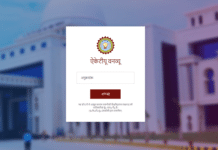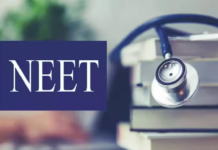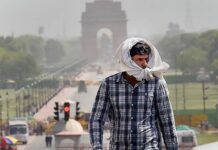The Delhi University has stated that it will conduct online open-book examinations for its final semester students. It also asserted that the questions prepared should involve reasoning. However, the students and teachers of the University have opposed this idea. The teachers and students have sparked the online movement of #DUAgainstOnlineExaminations on social media.
The teachers have even written to the President of India against the conduction of online examinations. They have called the method unfair on grounds that it is not feasible, given the diversity of students. The University of Delhi is known for its diverse student body. The body comprises of students from different socio-economic backgrounds from all over the country.
It is an unreasonable assumption by the University that all of its students have access to personal devices, a stable internet connection, or even electricity. A substantial chunk of the student body constitutes of outstation students. Those who went back to their hometowns during the mid-semester break have a legitimate probability of not having any study material on them. Many of them reside in cramped up spaces, with a situation at home that disallows them to take examinations or prepare for them with their best expertise.
The situation of Jammu & Kashmir, where thousands of students hail from, is known by all. Students have complained that the internet connectivity is unreliable. Places like Guwahati have the forthcoming “flood season” which will lead to an increase in the power cuts, disrupting the exam-taking process. It is a matter of the future of an individual. A resolution such as this one, without considering the situation of all students is extremely unfair. The student and teacher bodies of Jesus and Mary College have called this move neither feasible nor desirable.
Moreover, the mental state of students amidst the pandemic can also be a factor that prevents them from the optimum utilization of their potential or disallows them from appearing in the online exams, or performing poorly if they do.
In their letter to the Vice-Chancellor, the teachers have stated that the move is least desirable in the current situation. They have also pointed out the possibility of the sanctity of the examination process being compromised. The teachers have also suggested alternatives, such as passing final semester students based on internal assessments and not assigning any grades to them for this semester. The overall grade should thus be the one achieved till last semester. The same is being followed by many universities in the United States. The professors and students are worried that the online exams might lead to the copying of answers through parallel internet communication.
The evaluation process would be unfair as those with better e-resource will have an advantage over those who don’t under this mode of examination. The University needs to take into account the fact that these examinations are not just a formality, but a serious matter for the future of a large number of students who will be negatively affected. There are also other issues such as the availability and affordability of software packages like SPSS, R, and C++.
The mode of online examinations also poses a hurdle to the students who are visually impaired. The students would require a scribe and the audiobooks of the study material to assist them to take the examination.
The lack of time in issuing the notification about online examinations has also been pointed out. On May 6, the university constituted a 15-member group to look into the matters and review the preparedness to conduct examinations. Within a week, the university issued the notification declaring that it would be conducting online exams for students in the final semester. Only two days were given for inviting suggestions on these questions on May 11. The notification was issued on May 14.
A survey of 51,435 students of the University of Delhi was conducted by the Delhi University Teachers’ Association. The survey found that over 85 per cent of respondents are not in a position to appear for online Open Book Examinations.






















